The 22nd of January the ALDREN project organised an event in the European parliament with the support and participation of several Members of the European Parliament (MEP), hosted by MEP Ljudmila Novak, and the European Commission, on the topic “ALDREN Alliance for Deep RENovation in buildings: encouraging investments and accelerating the movement towards a nearly zero-energy non-residential building stock”. The key message from the MEPs and European Commission the need to address climate and energy issues urgently. “Our house is burning and flooding” mentioned Pau GARCIA AUDI, the representant from the EU Commission. Energy poverty, Health & wellbeing, the coherent application of the ambitious EU policy targets in the Member States by the building professionals, reliable and technology neutral implementation of the “Clean Energy Package” were among the topics discussed during the event. The Green Deal will very likely open the Energy Performance of Building Directive (EPBD) again, informed MEP Miapetra Kumpala-Natri.
The market expectations for ALDREN, encouraging investment and how the building professionals could contribute to the “renovation wave” announced in the Green Deal were discussed in a round table session moderated by REHVA president Frank Hovorka. Property Owner (Allianz Real Estate), Real Estate Association (EPRA), Industrials (EUROACE), Building professionals (FEANI), Service providers (EFIEES) and Environmental Organisations (OID) were panellists of the round table session.
In the welcome speech ALDREN consortium leader Mathieu Rivallain (CSTB) explained that the ALDREN project is funded by the European Union’s Horizon 2020 Research and Innovation Program. The ALDREN objectives are to achieve higher renovation rates and better renovation quality of buildings by overcoming market barriers. The back-bone along the whole deep renovation process in the ALDREN project is an improved European Common Voluntary Certification Scheme (EVCS).
He underlined that it was the right time and the right place to organise such an event to discuss with key actors from the top political level (EU Parliament, EU Commission) and professionals involved in the building renovations (financial institutions, major real estate companies, building professionals and industrials), the reasons why the building renovation rate and quality is behind target and to get feedback if the solutions proposed by the ALDREN project could help to improve the situation.
It was the right time because initiatives, as the EU Green Deal and other actions related to Climate Change especially in the Building sector, are taken now at the highest level in Europe: in the Parliament, in the Council and in the Commission. Building energy renovation is planned to be highly on political agenda as a flagship while tackling climate changes.
It was also the right place for this event because the successful implementation of the ambitious EU targets on Climate Change, requires that the whole implementation chain, from the legislative level (the EU parliament), where the objectives are defined, to the implementation on field by qualified professionals, should be coherent, consistent, unambiguous.
But when it comes to deep renovations in buildings, the implementation chain is not coherent. Today in Europe there are at least 34 different national /regional implementations of the EU policy, leading to different results regarding energy performance for the same building. The ALDREN project showed that, according the assumptions taken, the main numeric indicator of energy performance requested by the Energy Performance of Building Directive (EPBD) could vary from 73 kWh/m2 to -5 kWh/m2.
How under such conditions a coherent policy could be defined?
How under such conditions the building professionals can optimise building renovation by using the best EU practise?
How under such conditions there could be a technologic neutral level playing field and fair competition for products and systems EU wide?
Beside coherent implementation, the participants underlined that deep renovation is a complex issue, intertwined, facing technological and non-technological barriers. MEP Ljudmila Novak mentioned the need for a common language to describe the quality of buildings, the role of EPC’s sharing best practise. MEP Miapetra Kumpala-Natri underlined the need to take care about health and well-being when renovating buildings. She reported the experience made in Finland.
Mathieu Rivallain concluded that Energy performance (EP) assessment of buildings should:
- be comparable all over Europe,
- be reliable (expectation should be reach in reality),
- improve health & wellbeing (indoor air quality, climate change resilient buildings),
- define roadmaps to nearly Zero Energy Building (nZEB),
- favour communication between all involved stakeholders
- provide indicators to financial support to achieve EU climate targets.
EU comparability: ALDREN Energy Performance Certificate (EPC)
Energy Performance Certificates (EPC) could play a key role as information to building owners to trigger renovation, for the assessment of improvements achieved by renovation and for quality benchmark for financial instruments. The ALDREN EPC:
- uses best practise, based on CEN and ISO standards,
- defines a common scale to be used EU wide, based on cost optimum,
- is technology neutral and consider the newest innovative technologies
(e.g. on site wind turbines) - provides underlying indicators (energy needs, final energy, renewables, etc),
- takes into account the interaction between the building and the grid,
- integrates the resilience of the building to climate change.
Reliability and confidence – avoid a “Building gate”
The sad experience in the car industry shows that it is fundamental that the expected and promised results should be reach on the field. The building sector should avoid a “building gate”. Buildings should be designed for performance and not only for compliance. The energy bills should be lower, the Greenhouse gas emissions should be reduced in reality. The ALDREN procedure verifies the actual performance by measurements.
Preserving and improving health & wellbeing – building must be climate change resilient
People spend most of their lives in buildings. Fourteen Green Building certification schemes have been reviewed to analyse the parameters used to assess the Indoor Environmental Quality (IEQ). ALDREN classified them into four major IEQ components TAIL: Thermal (T), Acoustic (A), Indoor air quality (I), visual environment (L). TAIL is “Levels” compatible. The ALDREN TAIL indicator allow to communicate easily on IEQ.
Building passport – Roadmap to nZEB – Green Deal compatible (2050 ready)
The Building Renovation Passport (BRP) is complementary to the Energy Performance Certificate (EPC). It provides a step by step renovation roadmap until the nearly zero energy building level. The buildings renovated today must be EU Green Deal compatible, 2050 ready. ALDREN provides a renovation roadmap, without look-in effects and suboptimal renovation.
ALDREN Common language – from the boiler room to the board room
Nobody can trigger deep renovation alone. ALDREN indicators & outcomes facilitate the communication between the key market players, “from the boiler room to the board room”. ALDREN links the energy quality of buildings to three financial indicators as costs, risks and value and reduces risk for finance providers by resumed information.
Indicators for financial support to achieve EU climate targets – linking EU funding to EU tools
The financial sector will be the motor of the EU Green Deal and a fundamental leverage to trigger building renovation. Eligibility rules should be defined in a lending policy taxonomy where building professionals can build on when implementing the EU policy. The European Investment Bank (EIB) described in the document “EIB ENERGY LENDING POLICY Supporting the energy transformation Draft 24 July 2019” how such rules could look like. For example, the eligibility rules for building renovation define what will be funded:” All capital expenditure related to energy efficiency improvements to the building envelope and building systems. The expected energy savings can be estimated through an energy audit, comparison between the energy performance certificate before and after the works, or any other transparent and proportionate method acceptable to the Bank”.
This definition is still quite general and should be detailed, taking into account the market request for a common, holistic and reliable approach. In some Member States, national funding is already linked to national standards. Therefore when it comes to EU level, EU funding should be linked to European standards. The ALDREN project could contribute with the common Energy Performance Certificate, common indictors and best practise based on CEN and ISO standards to define precisely the requested building quality in lending rules.
At the end of the event, participants expressed their wish that this event should be the starting point of fruitful future cooperation between all stakeholders supported at the highest political level.
Author: Johann ZIRNGIBL – ALDREN Consortium

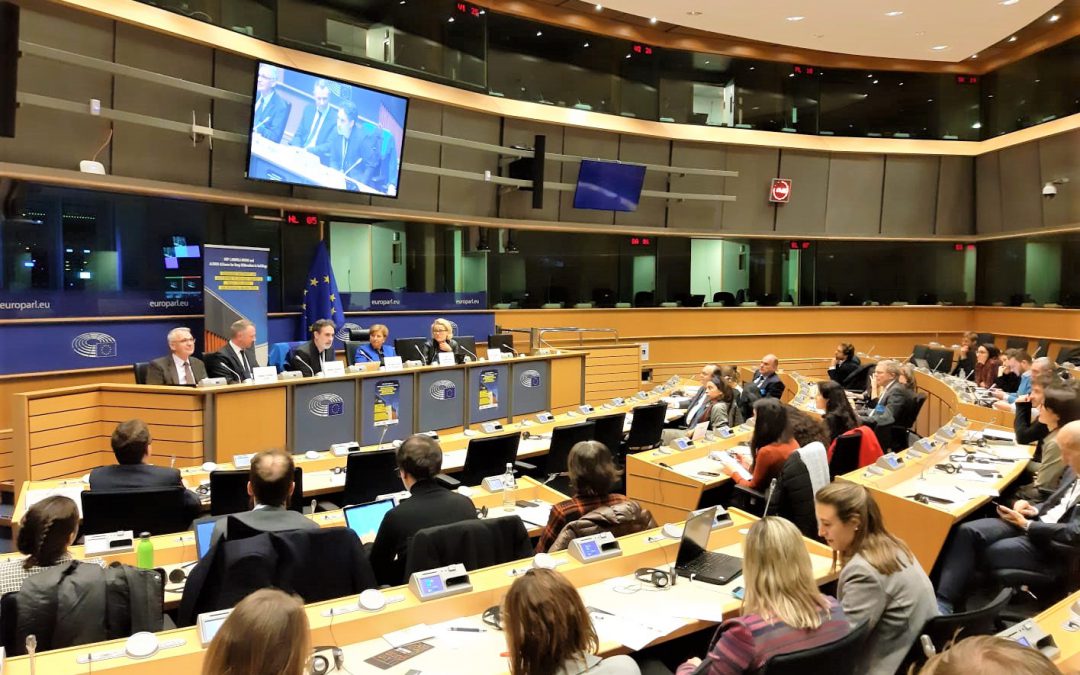
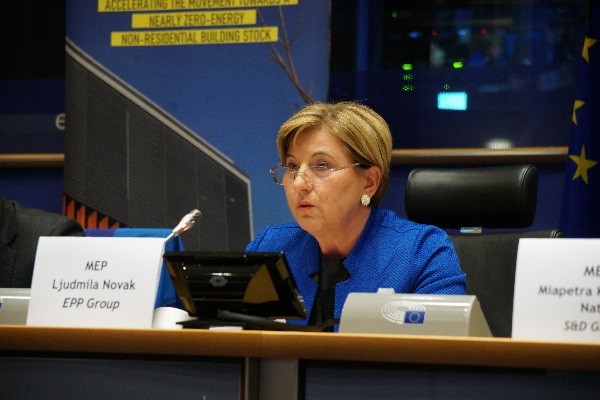
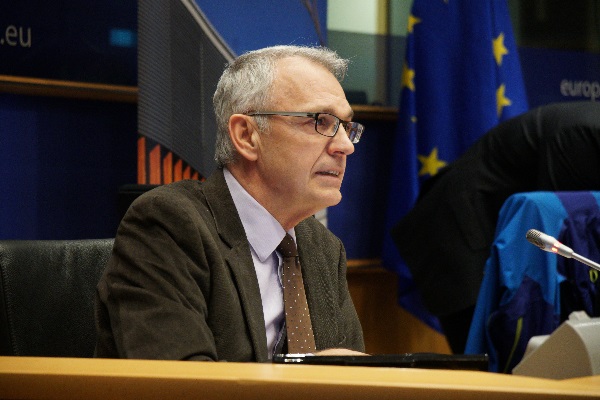
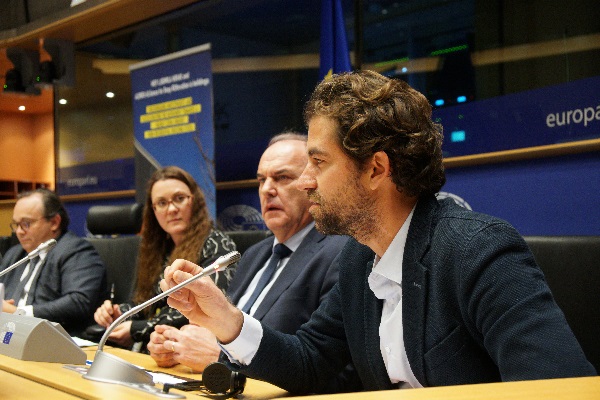
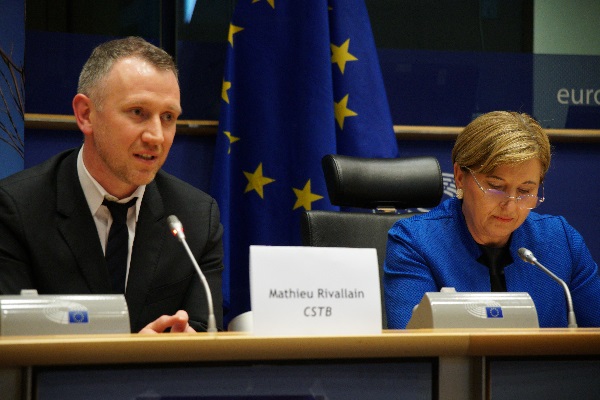
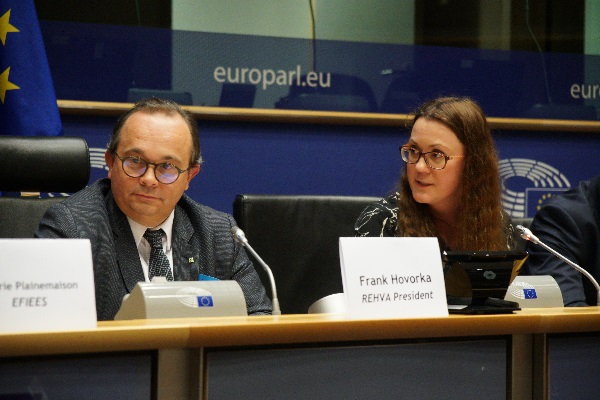
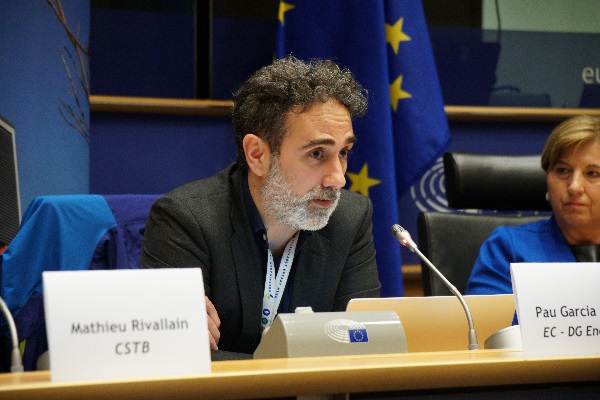
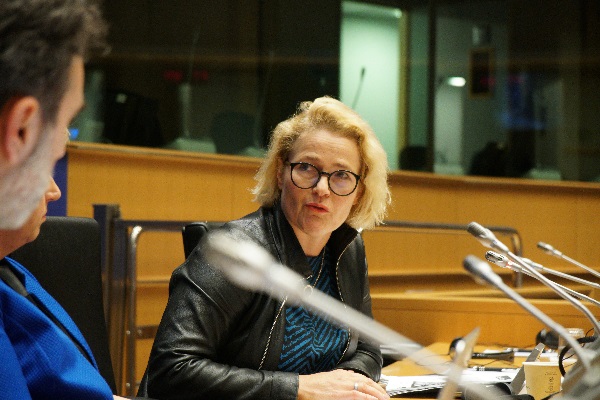
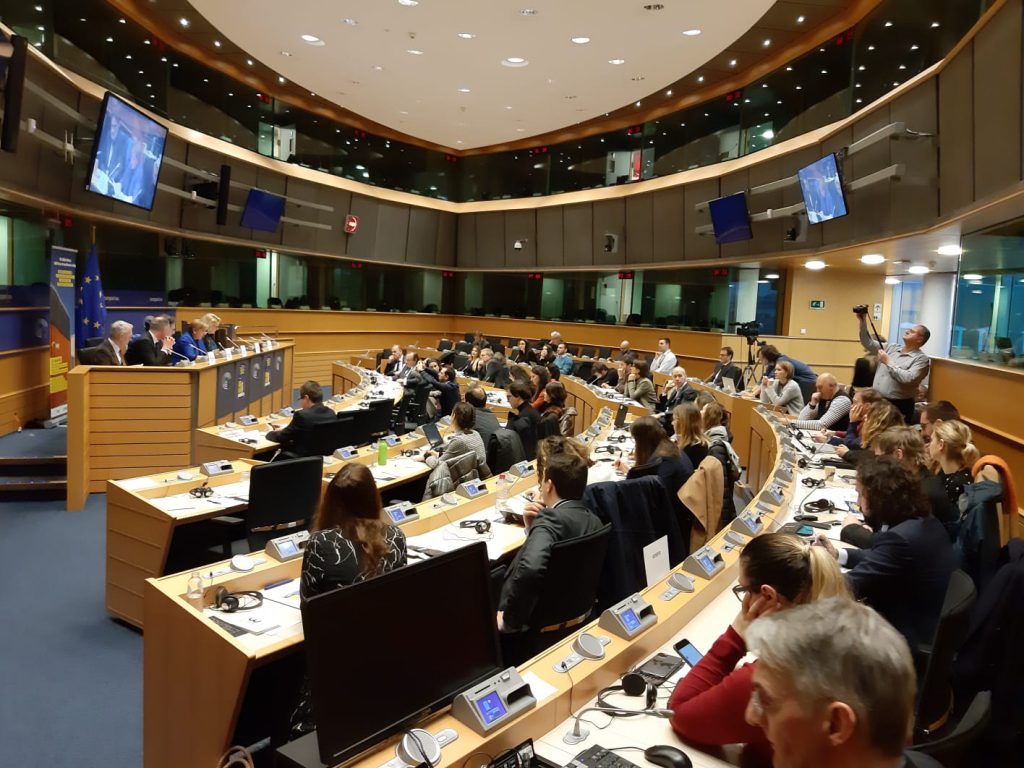
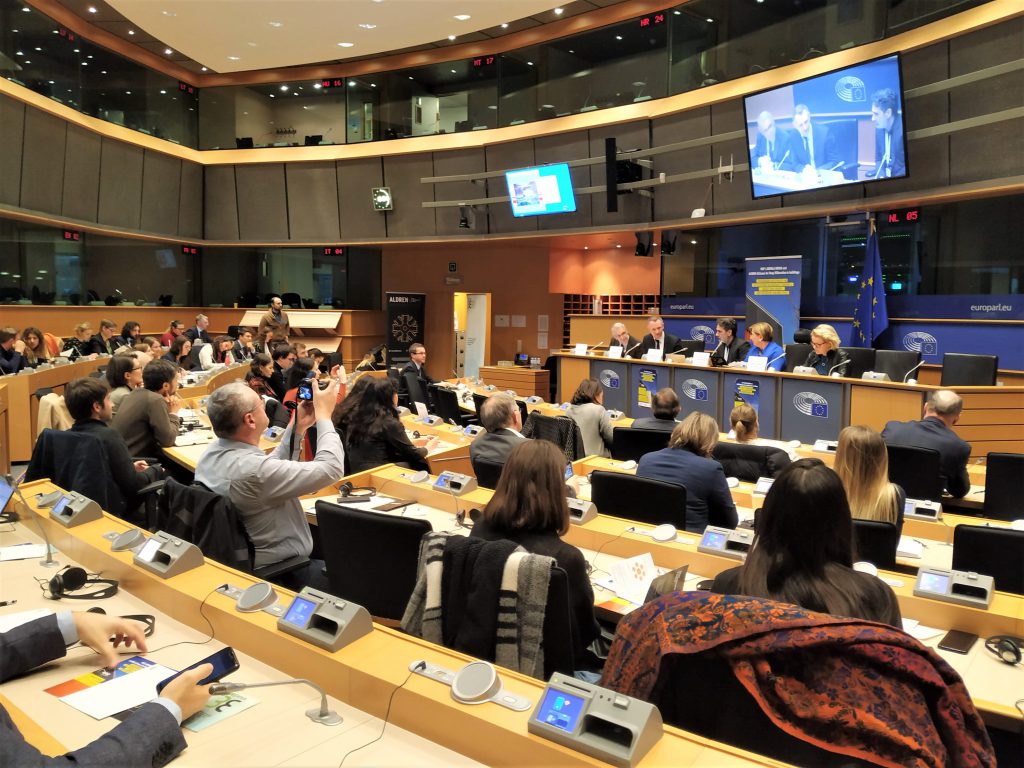
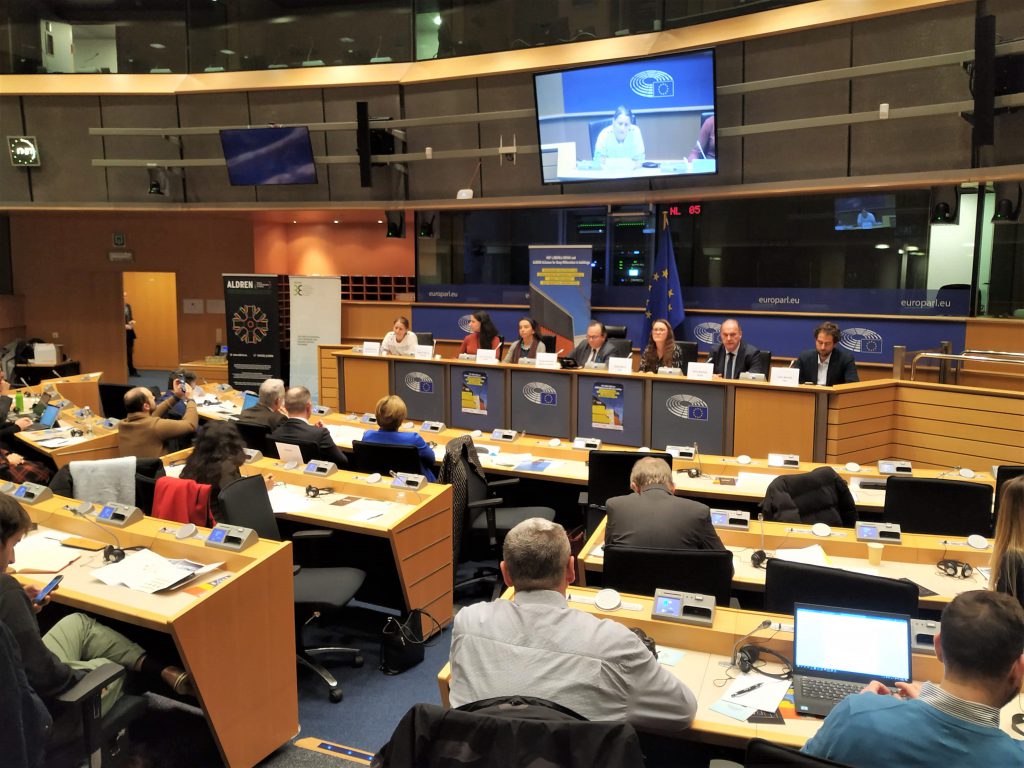
Recent Comments